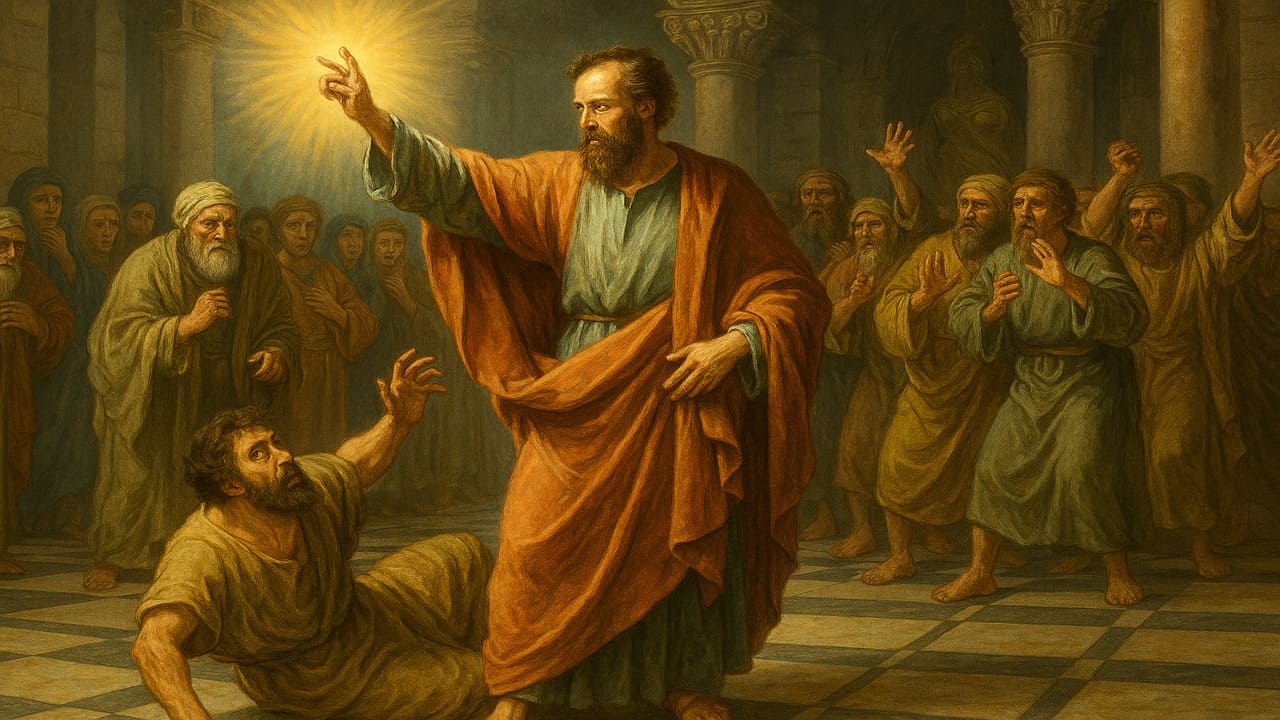
Thorn Ville Church – The city of Ephesus, located in Asia Minor (modern-day Turkey), was one of the most influential centers of the ancient world. Known for its wealth, culture, and the magnificent Temple of Artemis, it was also a hub of spiritual and religious activity. When the Apostle Paul Miracles arrived in Ephesus during his missionary journeys, he encountered a city filled with philosophical debates, idol worship, and curiosity about new ideas.
Paul spent a significant amount of time in Ephesus about three years making it one of his longest stays in any city. His ministry there was marked not only by persuasive teaching but also by extraordinary miracles. These miracles were not merely displays of supernatural power; they carried deep symbolic meaning and helped establish the credibility of his message about Jesus Christ in a city that valued both religion and mysticism.
According to the Acts of the Apostles, Paul performed unusual miracles during his time in Ephesus. People would take handkerchiefs or aprons that have touch his skin to the sick, and they would be heal of their illnesses. Evil spirits also departed from individuals when these items were applied. These events demonstrate that the power of God was not limited to physical presence but could extend through faith and symbolic objects.
The miracles were particularly significant because they occurred in a city renowned for magical practices. Ephesus was famous for its amulets, incantations, and occult rituals. When Paul’s miracles outshone these practices, it emphasized the superiority of divine power over human attempts at magic. As a result, many people who once relied on charms and spells began to renounce those ways, acknowledging a greater spiritual authority at work.
Also Read : Miracles in Acts: How the Apostles Proved the Power of the Holy Spirit
The miracles in Ephesus had profound effects on the city’s social and cultural life. One striking example was the mass renunciation of sorcery. Many who had practice magic publicly confess their deeds and brought their books of spells to be burn. The total value of these books are said to be extremely high, showing the seriousness of their decision to abandon old practices.
This event became a turning point in the city’s spiritual landscape. The destruction of costly magical texts was more than a personal choice it was a public declaration of faith in something greater. It also revealed how Paul’s ministry had shifted the balance of spiritual authority in Ephesus. By rejecting their magical traditions, people embraced a new way of life rooted in the teachings of Christ, and this change shook the cultural identity of a city known for its mystical traditions.
Not everyone in Ephesus welcomed Paul’s miracles and the influence they brought. The city’s economy was deeply tie to the worship of Artemis, whose temple was one of the Seven Wonders of the Ancient World. Silversmiths and craftsmen made a living producing idols and shrines dedicated to Artemis, and Paul’s message threatened their trade.
As more people turned away from idol worship, a riot broke out led by local artisans who feared losing their livelihood. They accused Paul and his companions of undermining the glory of Artemis, a goddess revered not only in Ephesus but across the ancient world. This opposition highlighted the tension between spiritual transformation and economic interests. It also showed that miracles, while inspiring faith, could also provoke resistance from those invested in the old systems.
Paul’s miracles in Ephesus carry lessons that remain relevant today. They remind believers that true faith is transformative and often challenges existing cultural norms. Just as Ephesus residents abadons their reliance on magic and idols, modern individuals are invite to let go of destructive habits or misplace sources of hope.
The miracles also illustrate the importance of credibility in spiritual leadership. Paul’s words were powerful, but they gained even more weight when supported by visible acts of healing and liberation. In a world filled with competing voices and ideologies, actions often speak louder than words. For communities of faith today, integrity and lived-out conviction are as important as the messages spoken.
Read More : Dark Secrets of Dubai: Death in Dubai Podcast Exposes Chilling Tale of Sex Trafficking
Rather than closing with a simple conclusion, it is worth exploring how Ephesus itself became a significant center for early Christianity after Paul’s ministry. The city later became home to key Christian leaders, including the Apostle John and, according to tradition, Mary the mother of Jesus. It also hosted early councils and remained a focal point of Christian teaching for centuries.
The church in Ephesus was so important that it is one of the seven churches mention in the Book of Revelation. Its legacy shows how Paul’s time there mark by miracles, teaching, and conflict planted seeds that grew into a lasting spiritual heritage. In this way, the story of Paul’s miracles in Ephesus is not just about individual healings but about the transformation of a city that continued to shape Christian history for generations.
This Article About Paul Miracles in Ephesus Written by: Ayu Azhari | Editor: Micheal Halim
Information Source: BibleHub.com
Thornville Church - Your Source for Biblical Inspiration - Exploring the oldest places Christian worship offers profound insight into the…
Thornville Church - Your Source for Biblical Inspiration - Thousands of visitors journey each year to historic religious sites believed…
Thornville Church - Your Source for Biblical Inspiration - Long term fitness planning now determines how strong, mobile, and independent…
Thornville Church - Your Source for Biblical Inspiration - Ancient Christian pilgrimage destinations are reshaping ancient christian faith education by…
Thornville Church - Your Source for Biblical Inspiration - Romanesque churches early Europe menunjukkan bagaimana arsitektur batu massif membentuk praktik…
Thornville Church - Your Source for Biblical Inspiration - Archaeological insights book acts increasingly illuminate the historical landscape of the…